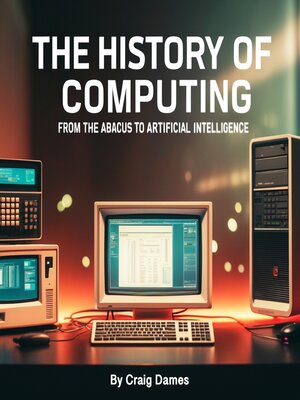The History of Computing
audiobook (Unabridged) ∣ From the Abacus to Artificial Intelligence
By Craig Dames

Sign up to save your library
With an OverDrive account, you can save your favorite libraries for at-a-glance information about availability. Find out more about OverDrive accounts.
Find this title in Libby, the library reading app by OverDrive.



Search for a digital library with this title
Title found at these libraries:
| Library Name | Distance |
|---|---|
| Loading... |
The story of computing begins not with electricity or screens, but with simple tools and the human need to solve problems. Long before the modern computer, ancient civilizations were already creating devices to aid in counting, measuring, and performing basic arithmetic. These early innovations laid the groundwork for centuries of progress in computing.
One of the most enduring tools from this era is the abacus. Believed to have originated in Mesopotamia over 4,000 years ago, the abacus evolved in various cultures, including Chinese, Roman, and Japanese societies. It was a portable, efficient device that allowed users to perform addition, subtraction, multiplication, and division by sliding beads along rods or grooves. Although simple in design, the abacus was powerful for its time and is still used in some regions for teaching arithmetic and mental calculation skills.
In addition to the abacus, ancient number systems were critical to the development of computation. The Babylonians used a base-60 numeral system, which influenced the way we measure time and angles today. The Egyptians employed a system based on units of ten, using hieroglyphs to represent values. Meanwhile, the Romans had a cumbersome numeral system that made complex calculations challenging. It wasn't until the adoption of the Hindu-Arabic numeral system, with its concept of zero and place value, that true advances in mathematical computation became possible.







